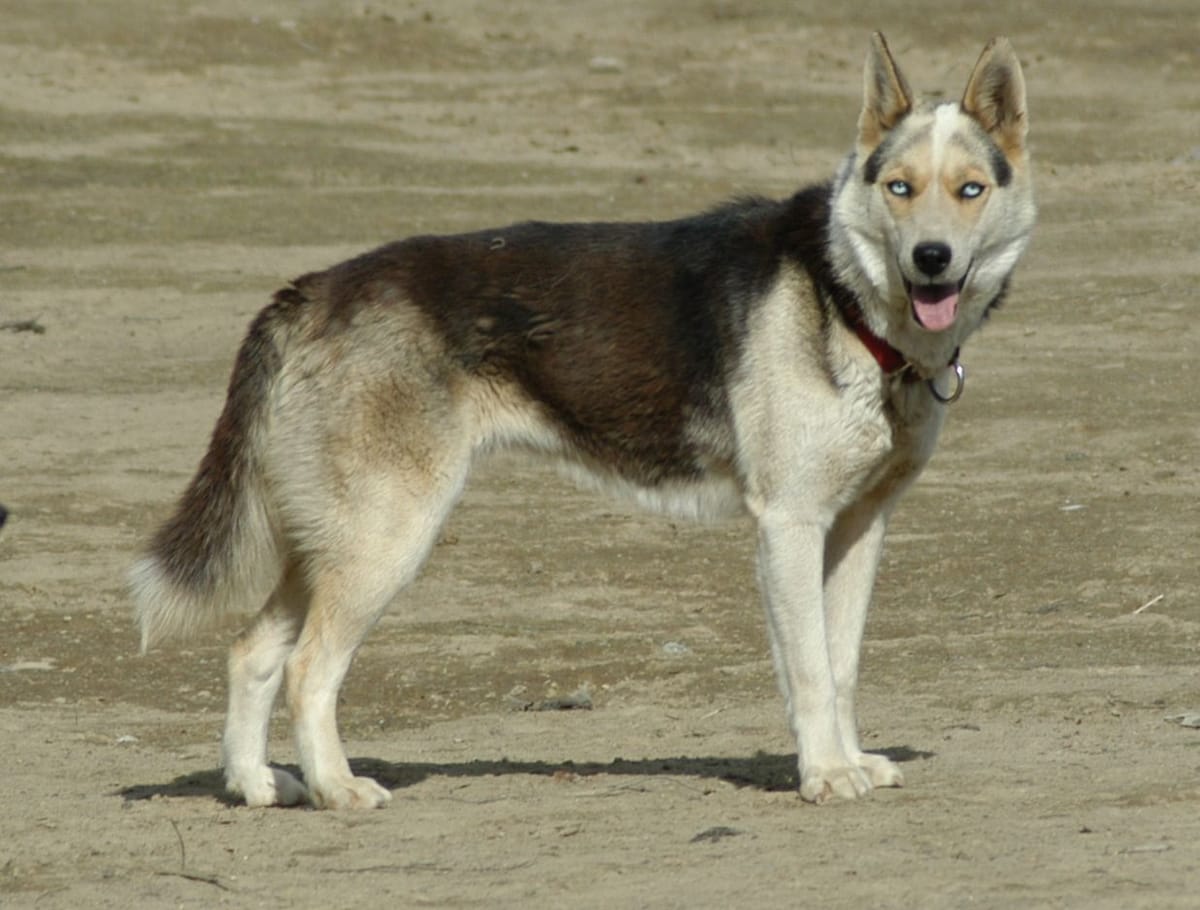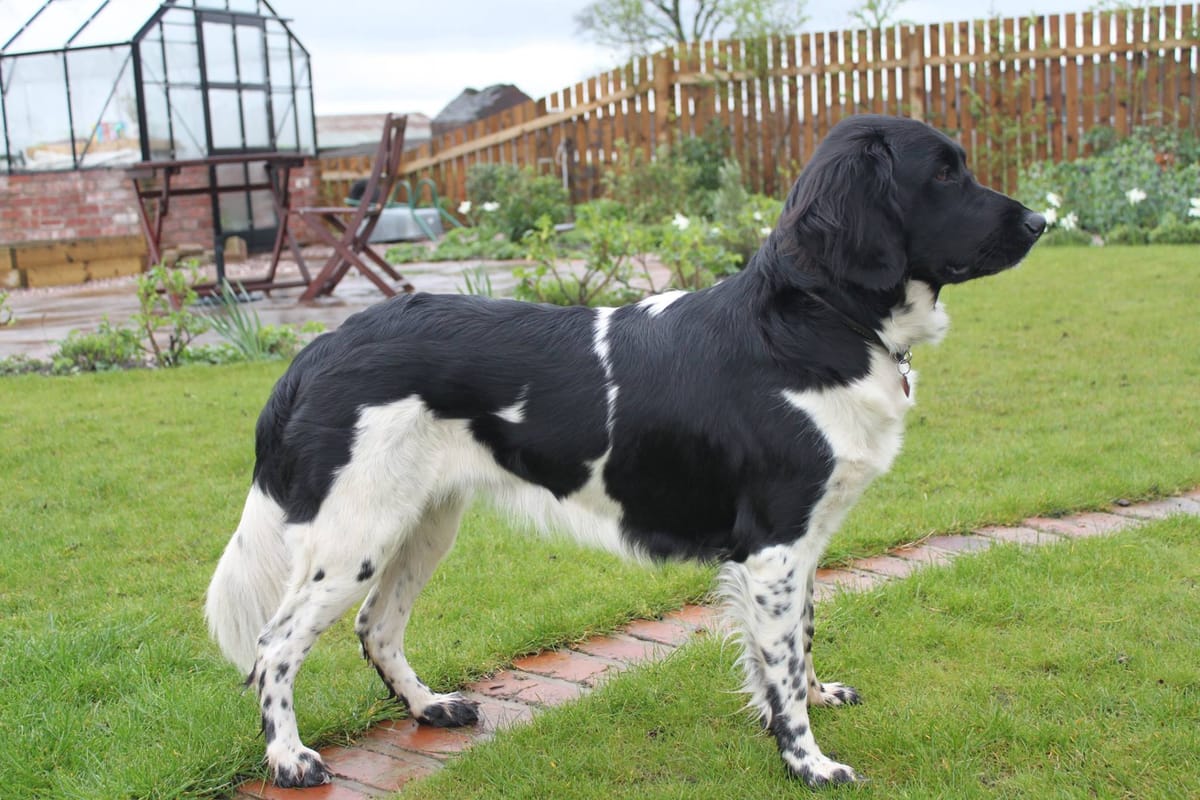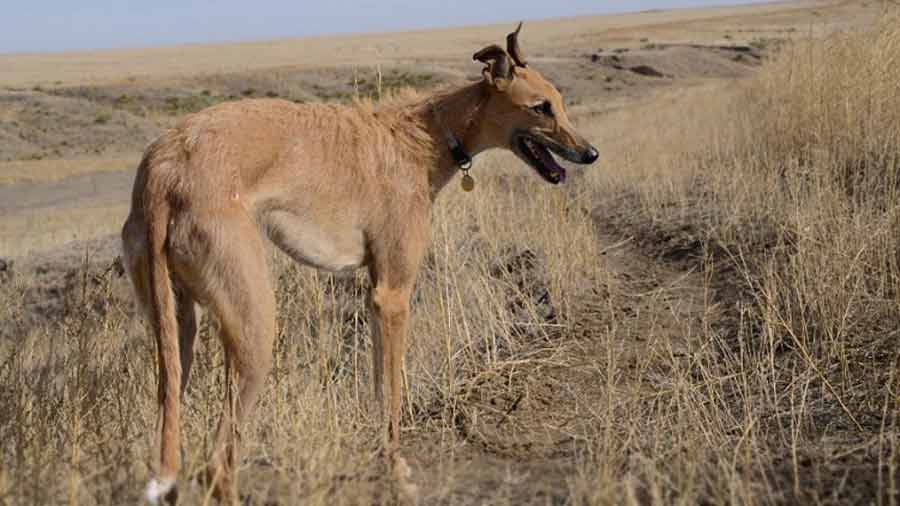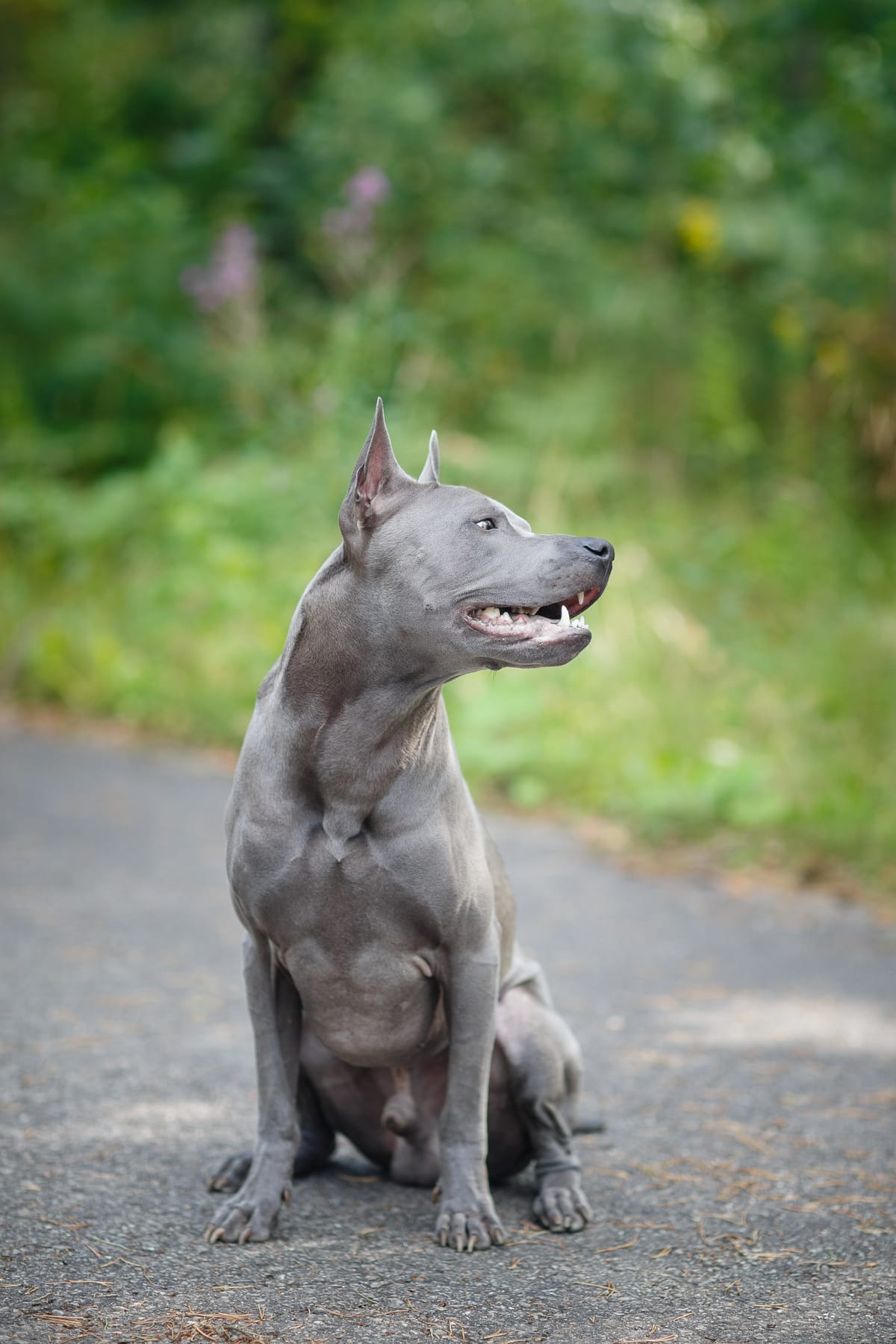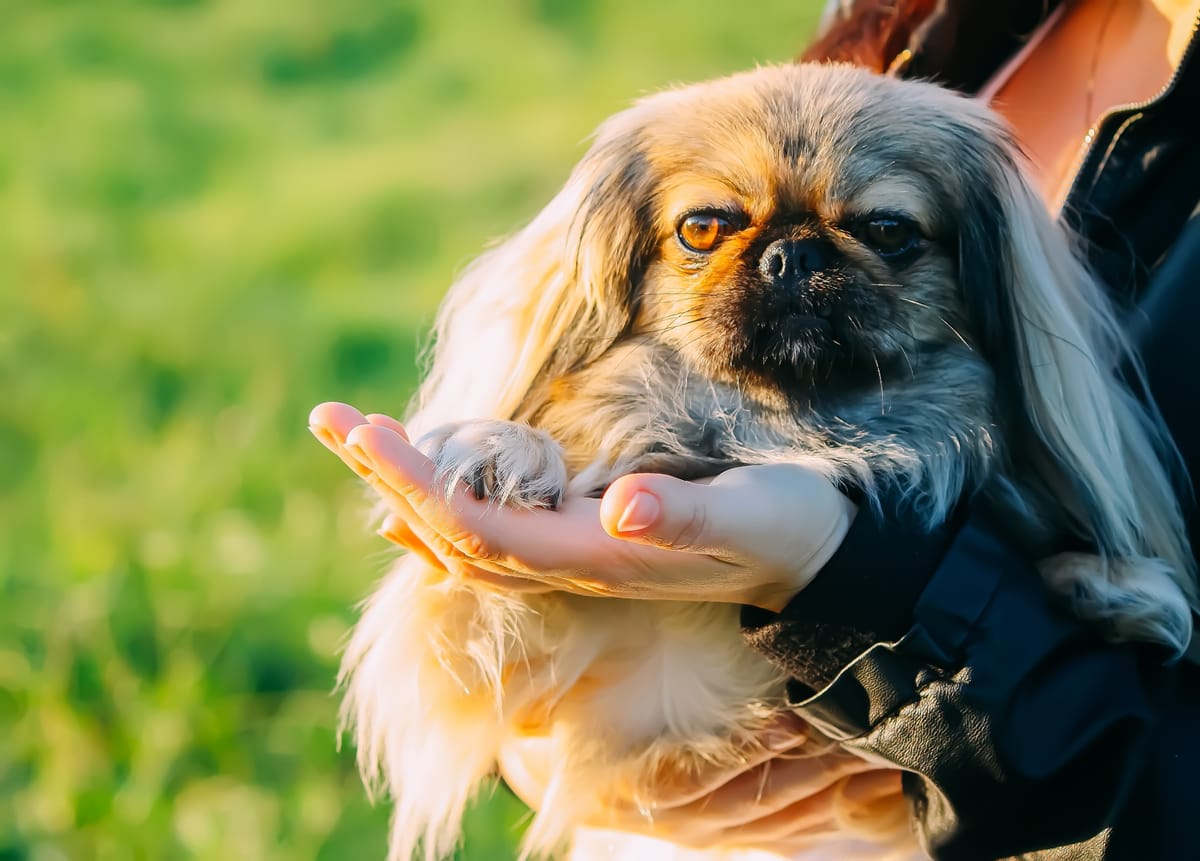The Russian Bear Dog, also known as the Caucasian Shepherd Dog, is a large and powerful breed that has been used for centuries to protect livestock from predators. Originating in the Caucasus Mountains of Russia, these dogs were bred to be fearless and independent, capable of taking on wolves and other large predators.
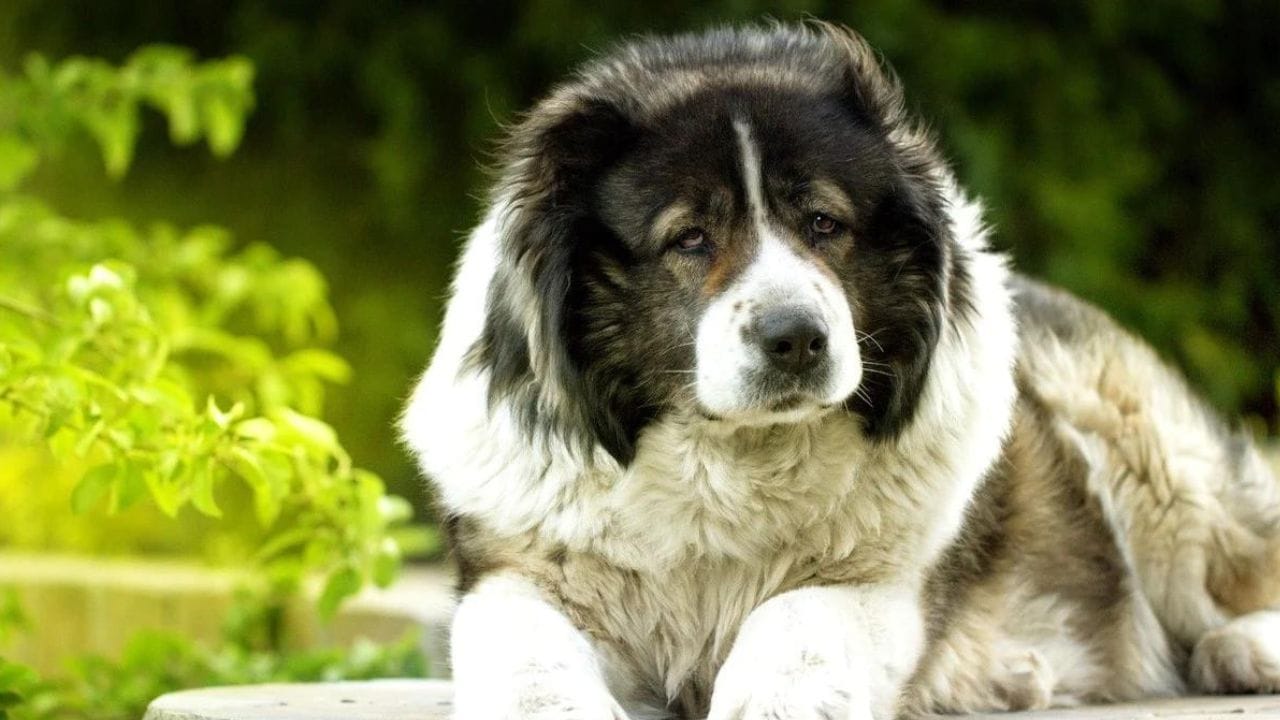
With their massive size and thick fur, Russian Bear Dogs are an impressive sight. They can weigh up to 200 pounds and stand over two feet tall at the shoulder. Their coats come in a variety of colors, including white, cream, fawn, and gray, and are thick and dense to protect them from the harsh mountain climate.
Despite their intimidating appearance, Russian Bear Dogs can make loyal and affectionate pets for the right owners. However, due to their size and protective nature, they are not recommended for inexperienced dog owners or families with small children. In this article, we will explore the history, characteristics, and care requirements of the Russian Bear Dog to help you determine if this breed is the right fit for you.
Origin and History
Russian Roots
The Russian Bear Dog, also known as the Caucasian Shepherd Dog, has a long and rich history in Russia and the surrounding areas. These dogs were originally bred in the Caucasus region, which spans across Georgia, Azerbaijan, and Armenia. The breed was used as a livestock guardian dog, protecting flocks of sheep and other animals from predators such as wolves and bears.
Caucasian Shepherd Evolution
Over time, the Caucasian Shepherd Dog evolved into two distinct varieties: the Mountain type and the Steppe type. The Mountain type is larger and more heavily built, while the Steppe type is lighter and more agile. Both varieties were highly valued for their strength, loyalty, and protective instincts.

Soviet Breeding Programs
During the Soviet era, the Caucasian Shepherd Dog was further developed through selective breeding programs. Soviet breeders aimed to create a dog that was even more powerful and imposing, with an even stronger protective instinct. The breed was used by the military and police as a guard dog, and also as a symbol of Soviet strength and power.
Today, the Russian Bear Dog is a popular breed around the world, prized for its intelligence, loyalty, and protective nature. While the breed's origins may be rooted in Russia and the Caucasus region, its popularity has spread far and wide, with many people around the world falling in love with these majestic dogs.
Breed Overview
Breed Recognition
The Russian Bear Dog, also known as the Caucasian Mountain Dog or Caucasian Ovcharka, is a large breed of dog that originated in the Caucasus Mountains of Russia. The breed is recognized by the American Kennel Club (AKC) and the United Kennel Club (UKC) as a member of the Working Group.
Physical Characteristics
The Russian Bear Dog is a giant breed, with males typically weighing between 110-200 pounds and standing 25-30 inches tall at the shoulder. Females are slightly smaller, weighing between 80-180 pounds and standing 24-28 inches tall at the shoulder. This breed is known for its large size and impressive strength.
The Russian Bear Dog has a double coat that is thick and fluffy, with a mane around the neck and shoulders. The coat comes in a variety of colors, including white, cream, gray, fawn, brindle, and pied. The breed is also known for its cropped ears, which are traditionally done for working purposes.
The Caucasian Shepherd Dogs are highly protective and loyal to their families. They were originally bred to protect livestock from predators, and their size and strength make them excellent guard dogs. However, they require a lot of socialization and training to ensure they are well-behaved around people and other animals.
Overall, the Russian Bear Dog is a majestic and impressive breed that requires a lot of care and attention. They are not recommended for first-time dog owners or those who live in small apartments. With proper training and socialization, they can make excellent pets for experienced owners who have the time and resources to devote to their care.
Temperament
Russian Bear Dogs are known for their exceptional temperament, making them excellent protectors and loyal companions. This breed is highly intelligent, which allows them to learn quickly and adapt to different situations.

Behavioral Traits
Russian Bear Dogs have a strong guardian instinct, which makes them highly protective of their family and territory. They are fearless and will not hesitate to defend against predators such as bears and wolves. However, they can also be aggressive towards strangers if they perceive a threat to their family or territory.
Despite their protective nature, Russian Bear Dogs can also be a loving and devoted family pet. They are known for their loyalty and will form strong bonds with their owners. However, they require early socialization and training to ensure they do not become overly territorial or aggressive.
Guardian Instincts
As a livestock guardian dog, Russian Bear Dogs have a natural instinct to protect their flock or herd. They are highly territorial and will patrol their boundaries to keep predators at bay. This instinct also makes them excellent guard dogs for homes and properties.
It is important to note that Russian Bear Dogs require a lot of space and exercise to maintain their physical and mental health. They are not recommended for apartment living or households with small children. However, with proper training and socialization, they can make a loyal and protective companion for the right owner.
Care and Management
Russian Bear Dogs are intelligent, independent, and powerful dogs that require proper care and management to ensure their well-being. In this section, we will cover essential aspects of caring for and managing a Russian Bear Dog.
Training and Socialization
Russian Bear Dogs are intelligent and trainable dogs. Early socialization and training are crucial to ensure that they grow up to be well-adjusted and well-behaved dogs. It is recommended to start socializing and training them from a young age. Positive reinforcement techniques, such as treats, praise, and playtime, are effective in training Russian Bear Dogs. It is also important to provide them with regular mental stimulation, such as puzzle toys and interactive games, to prevent boredom and destructive behavior.
Exercise Requirements
Russian Bear Dogs are large and energetic dogs that require regular exercise to maintain their physical and mental health. They should have at least 60-90 minutes of exercise daily, which can include walks, jogs, hikes, and playtime in a securely fenced yard. It is essential to provide them with enough exercise to prevent obesity, which can lead to health problems such as joint issues.
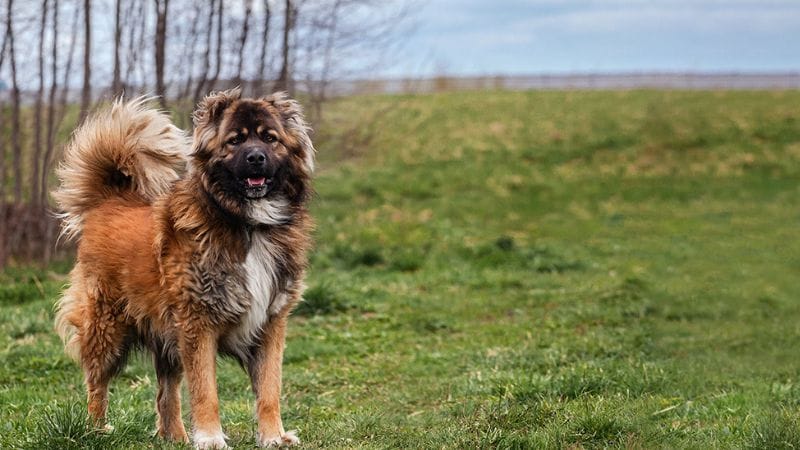
Grooming and Shedding
Russian Bear Dogs have a thick double coat that requires regular grooming to prevent matting and tangles. They shed seasonally, and during shedding periods, they require more frequent grooming. Regular brushing and bathing can help keep their coat healthy and shiny. It is also essential to trim their nails regularly and clean their ears to prevent infections.
Health and Nutrition
Russian Bear Dogs are generally healthy dogs, but like all breeds, they are prone to certain health issues. Hip dysplasia, cataracts, and bloat are some of the health problems that can affect Russian Bear Dogs. It is important to provide them with high-quality dog food that meets their nutritional needs. A diet rich in protein, healthy fats, and essential nutrients, such as calcium and glucosamine, can help keep them healthy and active.
In conclusion, caring for and managing a Russian Bear Dog requires attention to their training, exercise, grooming, and health needs. Providing them with proper care and management can help ensure that they live a happy and healthy life.
Living with a Russian Bear Dog
Russian Bear Dogs are known for their size, strength, and loyalty. They are a working breed and require an experienced owner who can provide them with proper training and socialization. In this section, we will discuss what it's like to live with a Russian Bear Dog, including their home environment and interaction with other pets.
Home Environment
Russian Bear Dogs are large breeds and require a spacious environment to move around comfortably. They are active dogs and need regular exercise to keep them healthy and happy. A fenced backyard is ideal for them to run around and play without the need for a leash. However, it's important to note that they are independent dogs and may wander off if not properly trained or supervised.
Interaction with Other Pets
Russian Bear Dogs are working dogs and have a strong prey drive. It's important to socialize them from a young age to prevent any aggression towards other pets. They can get along with other dogs and cats if properly socialized and trained. However, it's important to supervise their interactions and not leave them alone with smaller pets.
If you have a Russian Bear Dog puppy, it's important to start training them early to prevent any behavioral issues. They are intelligent dogs and can learn quickly with positive reinforcement. However, they require a moderate amount of training and may not be suitable for first-time dog owners.
In summary, living with a Russian Bear Dog can be a rewarding experience for experienced owners who can provide them with proper training and socialization. They are loyal and protective guard dogs that require a spacious home environment and regular exercise. With proper training and socialization, they can get along with other pets and make great companions.

Breeding and Puppies
Finding a Reputable Breeder
When looking to bring a Russian Bear Dog puppy into your home, it is crucial to find a reputable breeder. A reputable breeder will prioritize the health and well-being of the puppies, as well as the breed as a whole. They will carefully select breeding pairs based on health, temperament, and conformation to the breed standard.
To find a reputable breeder, it is recommended to do research and ask for recommendations from breed clubs or veterinarians. A reputable breeder will be transparent about their breeding practices and provide health clearances for the parents.
Puppy Care
Russian Bear Dog puppies require proper care to ensure they grow into healthy adults. It is important to provide a balanced diet and regular exercise to promote healthy growth and prevent obesity.
Training and socialization are also crucial for Russian Bear Dog puppies. They are intelligent and independent dogs, but can also be stubborn. Early training and socialization can help prevent behavioral issues and ensure a well-behaved adult dog.
The lifespan of a Russian Bear Dog is typically 10-12 years. As a large breed, they may be prone to certain health issues such as hip dysplasia and bloat. Regular veterinary check-ups and preventative care can help ensure a long and healthy life for your Russian Bear Dog.
Overall, breeding and raising Russian Bear Dog puppies requires dedication and responsibility. Finding a reputable breeder and providing proper care can result in a loyal and loving companion for many years to come.
Caucasian Shepherd's Role
The Caucasian Shepherd, also known as the Russian Bear Dog, is a large and powerful breed that has been bred for centuries to protect livestock from predators. This breed is known for its courage, loyalty, and protective nature, making it an ideal guardian for flocks and herds.
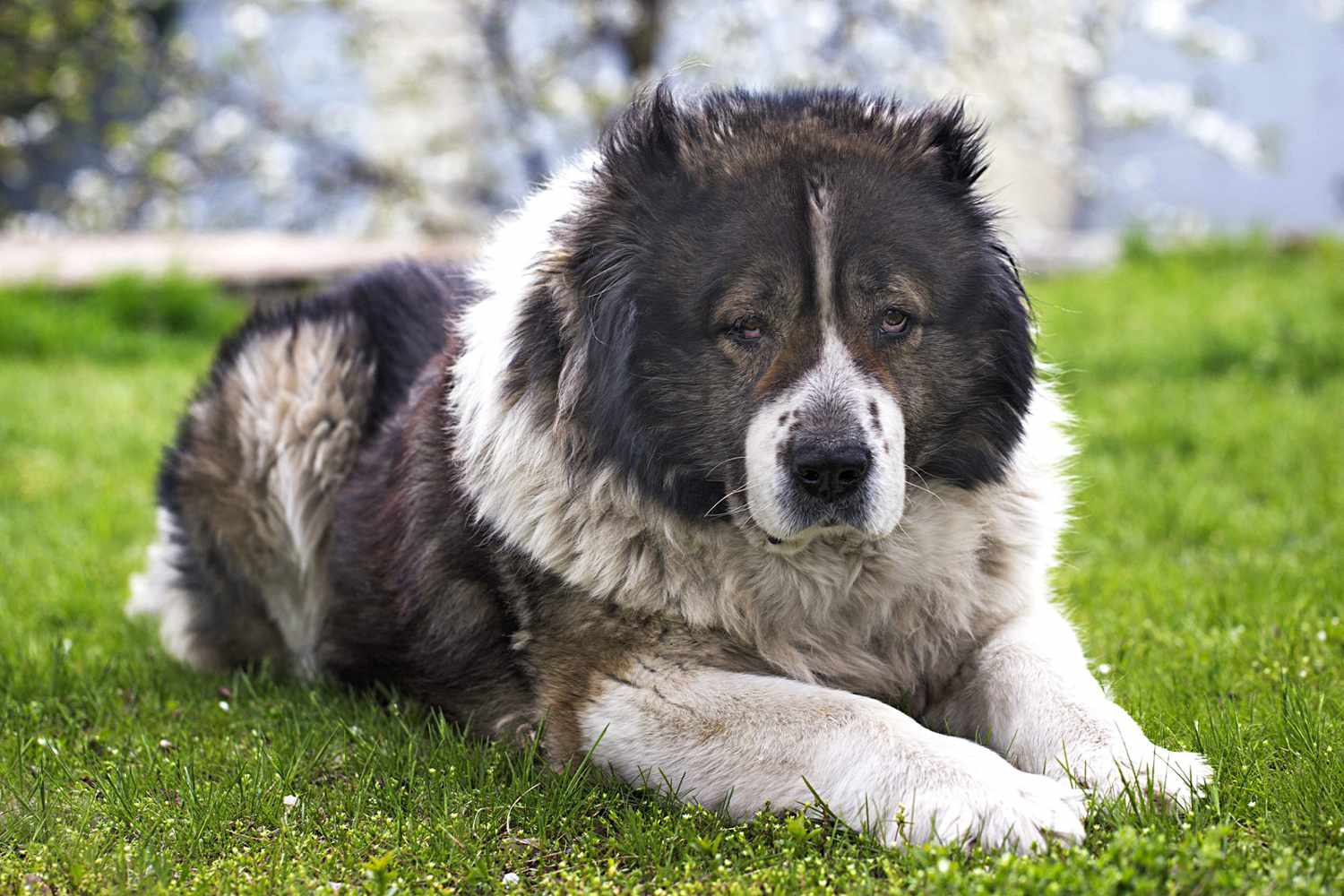
Livestock Protection
The Caucasian Shepherd is primarily used as a livestock guardian dog, and is known to be a highly effective protector of sheep, goats, and other livestock. These dogs are trained to live with the flock, and are fiercely protective of their charges. They will patrol the perimeter of the flock, and will not hesitate to confront any potential threats, including wolves, bears, and other predators.
One of the key features of the Caucasian Shepherd is its size and strength. These dogs can weigh up to 200 pounds, and are capable of taking down even the largest predators. They are also highly intelligent and independent, which makes them well-suited for the task of protecting livestock.
Modern-Day Roles
In addition to their traditional role as livestock guardians, the Caucasian Shepherd has also found a place in modern-day society as a working dog. These dogs are often used in law enforcement and military applications, due to their size, strength, and protective nature.
The Caucasian Shepherd is also a popular choice as a family pet, due to its loyalty and affectionate nature. However, it is important to note that these dogs require a significant amount of training and socialization in order to be well-behaved and well-adjusted pets.
Overall, the Caucasian Shepherd is a highly versatile and capable breed that has been bred for centuries to protect livestock and serve as a guardian and protector. Whether used for traditional livestock protection or modern-day applications, these dogs are sure to excel in their roles as working dogs and companions.
More rare dog breeds:
